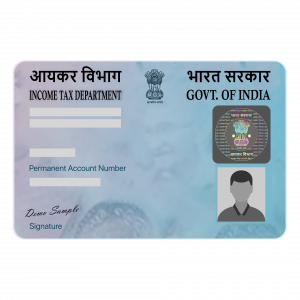Introduction
Becoming a Non-Resident Indian (NRI) marks a significant shift in your financial and legal responsibilities. While many might be aware of the shift in residential status for tax purposes, there are often crucial steps that go unnoticed amidst the transition. In this article, we will delve into five imperative actions that you must undertake once your residential status evolves into that of an NRI. These steps will not only ensure a smooth financial journey but also prevent future complications.
Don’t let reading hold you back, Watch our video instead
 1. Update Your PAN Card Status
1. Update Your PAN Card Status
When you embark on your journey as an NRI, it’s essential to update your PAN card status to reflect your non-resident status accurately. Despite the common belief that your tax return filing automatically updates your PAN card, this is not the case. You must proactively apply for an update through the designated form. The goal here is to specify your new residential status as a non-resident. This seemingly small act can have far-reaching benefits. By doing this, you can preemptively avoid future tax-related notices, as the tax authorities will be aware of your changed status and potential foreign income sources.
2. Open NRO and NRE Accounts
Transitioning to an NRI status necessitates the opening of two distinct accounts: Non-Residential Ordinary (NRO) and Non-Residential External (NRE) accounts. An NRO account operates akin to a savings account, designed to accommodate your Indian income sources such as dividends and interests. In contrast, an NRE account primarily caters to your foreign income. It is advisable to redirect your salary to your NRE account, especially for those in professions like the Merchant Navy. By strategically managing your income streams, you can mitigate unnecessary tax obligations and ensure smoother financial operations.
Read our article on NRI Selling Property in India: 5 Hassle-Free Checklists for a Smooth Transaction
Consult CA Arun Tiwari for more information at 📞 8080088288 or cs@aktassociates.com
3. Cease PPF Contributions
Although it’s crucial to halt contributions to your Public Provident Fund (PPF) account upon attaining NRI status, you can continue to maintain your existing balance. This implies that while you’re no longer allowed to contribute to your PPF account as an NRI, your accumulated funds can be retained. This approach ensures that you maintain access to your previous investments while adhering to the updated regulations.
 4. Appoint Power of Attorney
4. Appoint Power of Attorney
To efficiently manage your affairs in India, consider appointing a Power of Attorney (POA) holder. This individual, often a trusted family member or spouse, can act on your behalf for various administrative tasks. By registering a specific or limited-purpose POA, you empower them to handle matters such as banking transactions, property maintenance, and legal document signings. This proactive step minimizes the need for your physical presence in India for routine tasks, making your financial management more convenient and efficient.
5. Prioritize Income Tax Returns
When transitioning to NRI status, it’s vital to be mindful of your income tax return filing timeline. NRI status typically takes effect after staying outside India for over 182 days. Consequently, your tax return filing needs to account for this duration. For instance, if you leave India in December, ensure that your tax return includes income earned from April to December of that year. Neglecting this strategic timing can lead to avoidable complications, including penalties and interest payments on late or missed filings.
Conclusion
As you embark on your journey as a Non-Resident Indian, these five essential steps can make a significant difference in your financial well-being. By updating your PAN card, managing your accounts wisely, stopping PPF contributions, appointing a Power of Attorney, and strategically filing your income tax return, you pave the way for a smoother transition and minimize the risk of unforeseen complications down the line. Remember, careful planning and adherence to these steps can empower you to navigate your NRI status confidently and proactively.

